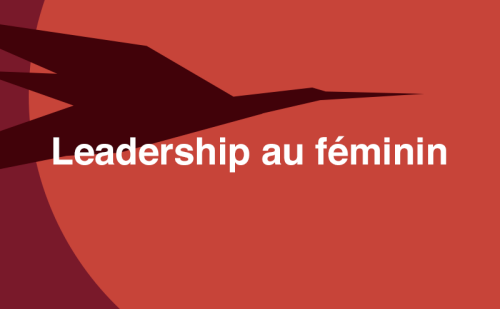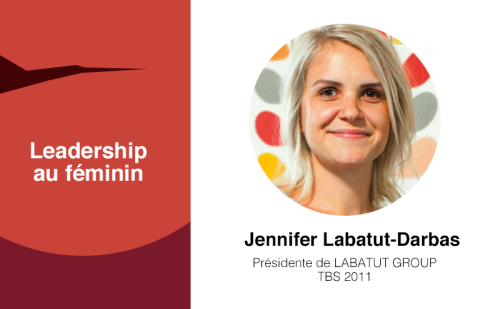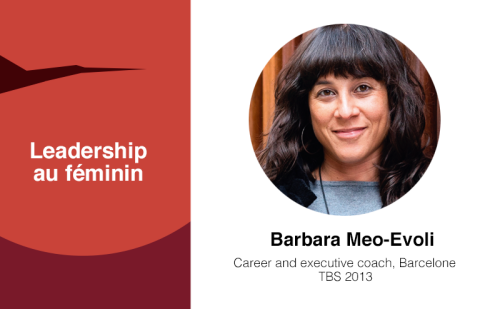Today, those who have the best ideas carry the projects.
Sophia Martin-Ktiri
TBS 2009
RAISE VENTURES, Investment Co-Head
|
What has your background been? After a BAC ES at the French high school in Casablanca, I did my preparatory class in Nîmes and joined TBS Education in 2005 where I specialized in corporate finance. With the arrival of my first child, I turned to supporting entrepreneurs by joining the 360 Capital Partners fund to support start-ups. In these hierarchical professions, the ultimate goal is to become a partner: too long a journey... So I decided to join the Amazon Retail team, to manage a profit center in the Media & Books sector. In 2 years, I met agile and rigorous people and I learned a lot. This experience also questioned the meaning of my work. I then heard about RAISE and discovered environmental and social investment. When I met the two founders, Clara Gaymard and Gonzague de Blignières, I understood that the commitment was concrete, as the investment teams donate 50% of their profit sharing to a foundation that supports and helps entrepreneurs.
How does female leadership feature in your current position? We are currently launching a seed and pre-seed fund dedicated to the financing of Responsible Tech, a fund for which I am co-manager. At RAISE, each activity is managed by a woman/male pair and there is absolute parity at all levels of the hierarchy. A little anecdote: I was expecting my second child when I was recruited, and my pregnancy was never an obstacle to my hiring. The "RAISE seed for good" program was launched in 2022 with a goal of €80 million to help future leaders of responsible tech emerge |
 |
In your professional world, has being a woman mattered?
Yes, especially at RAISE. Feminism may be fashionable, but it is unacceptable today not to have a woman on your team. Unlike 10 years ago, female profiles are sought after.
| In the past, female leadership was all about the wonder woman! It was difficult to project oneself in this model which implied so many sacrifices |
What is your vision of leadership?
It has evolved a lot. During my time at Amazon, I discovered an American-style meritocratic leadership, based on trust and ability to execute, not on seniority. Today, it is based on feedback, more horizontal, less hierarchical. Leadership is based more on skills and competencies than on age or experience.
Is there a female leadership?
Even if I don't want to make a difference, I sometimes have a bias on the subject. It seems to me that women sometimes have more empathy, humility and finesse in certain situations. Parity in leadership allows for complementary approaches and a diversity of opinions.
How can it be a plus to be a woman in the professional world? On the other hand, how can it be uncomfortable?
The balance between professional and personal life is difficult, a certain guilt sometimes persists. It's a cliché but it's a reality.
Do you have any management practices and experiences to share?
Practices are specific to each sector. I tried to implement some of Amazon's practices at RAISE, such as personal feedback. We have to start from the principle that the manager is responsible for collective performance and is therefore at the service of his teams.
In your opinion, what role do the economic, political, sociological or cultural conditions play in women's access to positions of responsibility?
At the political level, the Rixain law imposes equal pay and a feminization of the boards of directors. This is a commendable initiative that targets companies with more than 1,000 employees. Within our portfolio of holdings, women already represent 30% of the members of these boards, but the objective is to reach 50%.
Have you seen the conditions of leadership profiles evolve?
Of course, in the past, female leadership was all about the wonder woman! It was difficult to project oneself in this model which implied so many sacrifices. Today, many taboos have been lifted, sometimes through confinement. Ten years ago, Sheryl Sanberg, the COO of Facebook, launched the movement with her book "Lean in" (En avant toutes). Today, many female entrepreneurs and C-levels are breaking the codes and asserting themselves as a new kind of role model.
How can we encourage women to take on leadership roles?
First of all, it would be good to have more diversified role models and not only just "X-HEC". Secondly, we need to develop sisterhood and get involved in these issues by getting involved in the field (schools, companies). On a personal level, I am involved with "Sista" to encourage female entrepreneurship.





















No comment
Log in to post comment. Log in.